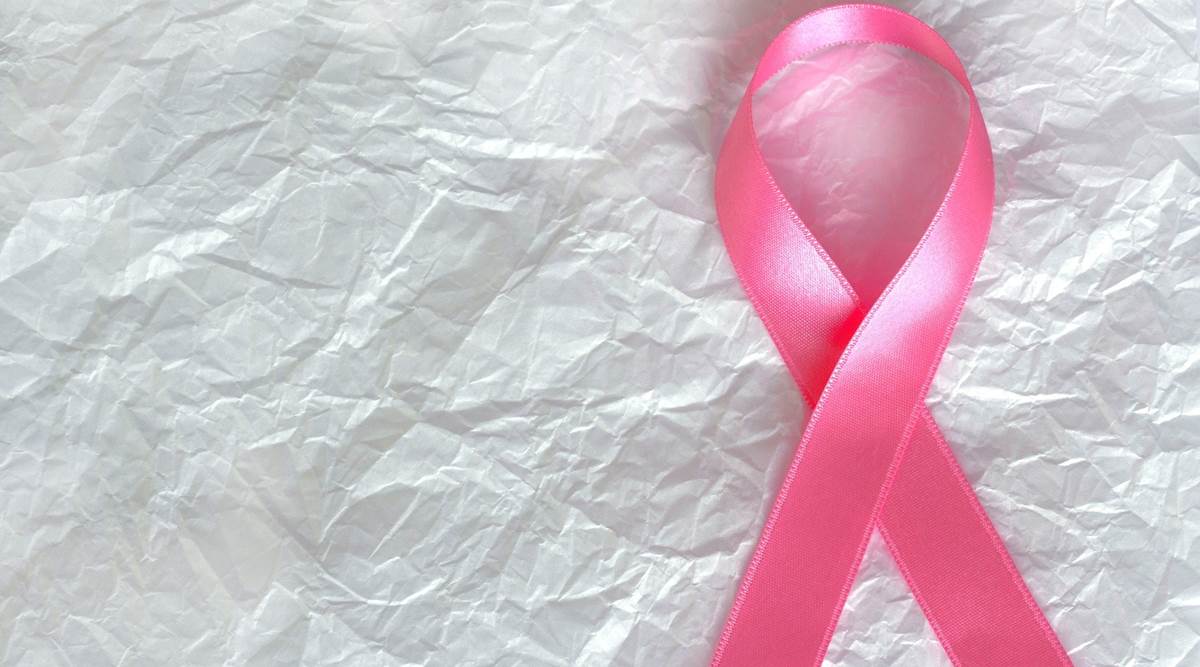 Treatment for male breast cancer is on similar lines as female breast cancer. (Source: Pixabay)
Treatment for male breast cancer is on similar lines as female breast cancer. (Source: Pixabay)While breast cancer is a disease that is commonly seen in women, men fall prey to it, too. It takes form in the male breast tissue. In fact, 1 per cent of all breast cancers detected occur in men. Dr Rohan Khandelwal, Consultant, The Breast Centre, CK Birla Hospital, says that while all humans are born with a small amount of breast tissue, women start developing more breast tissue during puberty, and hence become more prone to developing breast cancer. But the small amount of breast tissue in men exposes them to the risk as well.
Types of breast cancer:
The most common types of breast cancer in men are ductal carcinoma and invasive lobular carcinoma. It starts in cells that make up the glands:
Ductal carcinoma: This cancer originates in the milk ducts, and nearly all-male breast cancer is ductal carcinoma.
Lobular carcinoma: This is a type of breast cancer that begins in the milk-producing glands (lobules) of the breast. This type of cancer is rare in men because they have few lobules in their breast tissue.
Other types of breast cancer that can occur in men include Paget’s disease of the nipple and inflammatory breast cancer which are rarely found in men, the doctor says.
What are the early warning signs?
The disease does not show any symptoms when the cancer is minor and treatable. The thickening of the breast tissue, painless lump, changing of the skin covering the breast such as dimpling, puckering, redness or scaling are some signs seen in the later stage. It can also be identified by experiencing nipple redness, scaling, the turning inward of the nipple or discharge from the nipple, explains Dr Khandelwal.
“If you feel that your chest has any kind of lumps — when you move your finger in a circular motion around the breast area — it is recommended you visit a doctor at the earliest. Doctors diagnose the cancer cells through the tissue samples obtained by biopsy, post which they examine the disease through nipple discharge, mammogram and ultrasound.”
What are the risk factors?
Men above the age of 60 are more prone to breast cancer with the maximum risk factor. Other factors include:
Exposure to estrogen: The risk grows if one consumes estrogen-related drugs such as drugs used for hormone replacement therapy for prostate cancer. Excess alcohol consumption, tobacco, less physical activity and obesity can lead to high estrogen level.
Family history: Some men inherit genes from their parents that increase their risk of breast cancer.
Liver disease: Disorders such as cirrhosis of the liver can decrease male hormones and increase female hormones in the body that increase the risk of breast cancer.
Treatment options
“Health and the stage of cancer are major factors that are considered before the treatment of breast cancer. These treatments usually involve surgery as it helps in removing the tumor along with the breast tissues that surround the tumor. Treatment for male breast cancer is on similar lines as female breast cancer,” Dr Khandelwal tells indianexpress.com.
The surgical process includes:
Mastectomy: This process includes the removal or extraction of the nipple, areola and all the breast tissue.
Sentinel Lymph Node Biopsy: This process includes the acknowledgement of the lymph nodes. These nodes are where the cancer is much likely to start spreading from. Further, if none of these cells is found, there is a good chance that cancer hasn’t spread beyond the breast tissue to other parts of the body.
Some common therapies that a patient can go for knowledge and consultation are the radiation and systematic therapy. Systematic therapy consists of biological, chemo, and hormone therapy. In this process, anti-cancer drugs are given either through the mouth or injected into the vein of the patient. Radiation therapy is used to destroy or reduce the size of the tumor before the patient goes into surgery, the doctor concludes.
For more lifestyle news, follow us: Twitter: lifestyle_ie | Facebook: IE Lifestyle | Instagram: ie_lifestyle